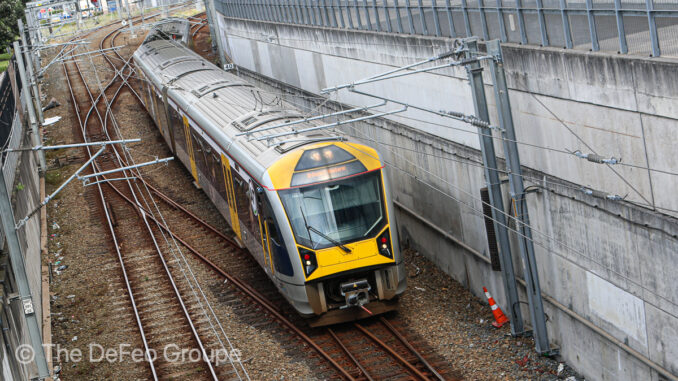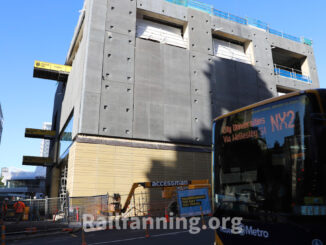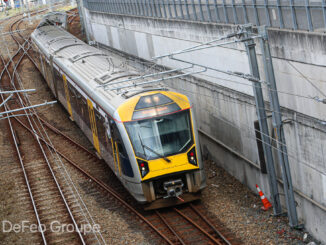
Passenger trains have returned to Auckland’s Britomart Station in New Zealand after a three-week closure.
Workers installed a new scissor track crossing at the eastern end of the Britomart tunnel and replaced worn-out rail between Newmarket and the city.
The closure was necessary to get a boosted workforce into the inner parts of Auckland’s network that are challenging to access while trains are running, KiwiRail Chief Operating Officer Capital Projects and Asset Development, David Gordon said.
“Along with installing a new track scissor in the throat of Britomart Tunnel, our rail crews fixed 6km of worn rail and replaced two turnouts running between Newmarket and Britomart, which is a major highway in our network, carrying most of the city’s trains,” Gordon said in a news release.
“On the average day, more than 350 trains travel on this section of line, so we made the most the shutdown and worked 24/7 to make sure trains could return to Britomart today, as scheduled,” Gordon added.
Passenger trains returned to sections of Auckland’s rail network earlier this month following a 16-day network-wide shutdown for work to occur over the Christmas and New Year period. More than 200 rail staff and contractors completed rail infrastructure work, which officials say will make the network more resilient and reduce future outages.
“Closing the track for an extended period like this minimises overall disruption to train users, as it allows far greater productivity for our teams,” Gordon said. “That being said, we certainly appreciate the patience of the city’s train users who have been disrupted by our programme.”




